
Australia Advocates for Strategic Balance Amid Rising Chinese Presence in Indian Ocean: Penny Wong, Foreign Minister
At the Indian Ocean Conference 2024, held in Perth, Australia’s Indian Ocean capital, Foreign Minister Penny Wong joins Assistant Foreign Minister Tim Watts in welcoming delegates from across the region. With a focus on fostering peace, stability, and prosperity, the conference seeks to strengthen collaboration among Indian Ocean countries. Minister Wong highlights the significance of the Indian Ocean to Australia’s strategic interests and emphasizes the need for collective efforts to shape a region characterized by cooperation and adherence to shared norms.
Interview:
Indian Ocean Conference 2024; sentencing of Dr Yang Jun; United Nations Relief and Works Agency for Palestine Refugees in the Near East (UNRWA) investigations; Quad; US President Biden and Special Counsel report; Australia-India relationship.
Look, it’s terrific to be here with Tim Watts, the Assistant Foreign Minister for the Indian Ocean Conference. And we’re, of course, here in Perth, Australia’s Indian Ocean capital. This is the first time we’ve hosted such an important gathering and it’s really fitting we do it here in Perth. Not only our Indian Ocean capital but a city whose people understand very clearly the importance of looking to the Indian Ocean and the countries of that wonderful region. We’re joined by no less than 400 delegates from across the region and beyond and I particularly look forward to welcoming Sri Lanka’s President Wickremesinghe. We’re really very honored that he is making this visit to Australia.
I’m grateful also that 17 Ministers and five Secretaries-General have also made the journey to be here, in particular, my very good friend, India’s Minister of External Affairs, Dr. Jaishankar. The Indian Ocean community is diverse, but we share a great deal. We share a vision for a region that is peaceful, stable and prosperous, a community in which agreed rules and norms empower all of us to cooperate, to thrive, to trade. We share a strong interest in climate change and tackling its effects and in ensuring the health of the oceans, the protection of fish stocks, marine safety and our interests in trade and economic development and much more. So, we share all of these interests and we want to work together on shared solutions.
I would make this point to Australians – we talk a lot about the Indo-Pacific and a lot of the time we do look to the Pacific region and we do look north to ASEAN and North Asia. but the Indian Ocean also is essential to Australia’s prosperity and our security. And in fact, the DSR did list this is one of our primary areas of strategic interest. We want to contribute to the strategic balance of the region. That’s the meeting I am taking into the – that’s the message I am taking into the meetings I’m having today with Ministers, that we all have a role in building the region that we want. That is the approach Australia is taking as we work with partners in the Indo-Pacific and beyond. We want a peaceful, stable, prosperous and region in which the ability of all countries to chart their own course and make their own choices is preserved and in which rules and norms ensure predictability for all parties.
I’m happy to take questions on this first and then on any topics of the day. And if you have anything for Tim, please go ahead.
Just somewhat related, the suspended death sentence of Yang Hengjun. Has that been a fallout, and have you spoken to your counterparts here about that issue?
I made extensive comments about that on the day of the sentence. As I said, the Australian Government and I think the Australian people were appalled at the outcome. My thoughts are with the family. I made clear that we will be calling in the Ambassador to make representations. We will continue to advocate on behalf of Dr. Yang. I know that obviously, he has further legal rights, which he must consider, and we will continue to advocate for him.
The Chinese presence in the Indian Ocean. How much is this a concern for Australia? We have recently seen the Chinese spy vessels visiting countries in the region, including Sri Lanka, and now heading towards Maldives as well. Anything Australia would like to say? What’s your sense over the developments in the Indian Ocean?
Our view is that we want a region that’s peaceful and stable, and we want to ensure that there is a strategic balance in the region so that no one country can determine outcomes and no one country can constrain the choices that other countries have. So, this conference hosted with India is focused on that. How do we better cooperate and work together across what is a very large geographic and diverse region? How can we better work together to preserve and ensure the sort of region that we want?
When you said no country should constrain any other country’s choices, Sri Lanka has now put its own moratorium on research vehicles coming into its shores. Would you like to see other Indian Ocean islands also put in similar moratoriums? And I did have a question about the Quad, but I can ask that later if you prefer.
Well, look, first on that, I think those are sovereign choices for those nations. And I would hope, in making those decisions, they could, in fact, make their own sovereign choices, their own free choice about what they believe is in the stability of the region and of their own stability. That is what we would always seek. I always think it’s better to talk about what you’re for rather than what you’re against. So, as I said, we’re for peace, stability, prosperity, and countries being able to make their own decisions. And we are for systems of rules and norms that ensure that it isn’t power and size alone which determines outcomes. You wanted a Quad question, then I’ll come to Channel Nine.
All right, you’re meeting External Affairs Minister Jaishankar here. Given that election schedules in the US and India seem to be deciding whether the Quad summit can actually take place anytime this year, how hopeful are you? And do you think this will derail the Quad process?
In relation to the answer, absolutely not. I think certainly in the very first meeting I attended as Foreign Minister with the Prime Minister was the Quad meeting in Tokyo. And in the time that I’ve had this job, I think that what we have seen at leader level and in the Foreign Minister’s track, the Quad engage even more strongly and work together more closely. And it is a critical, but not the only part of the sort of strategic balance that I’m describing, which is essential for the type of region we want. It’s all about strategic balance and the sort of region we want. Channel Nine. Are you Nine?
No, I’m The West.
Foreign Minister: Oh, I’m so sorry. You’re standing together so I apologies. Ok, The West. Now, I’m going to get in trouble. Because I’m in Perth and I.
As you’ve spoken to delegates and counterparts today, has there been any feedback on the Voice? Has that hurt our reputation and credibility? The defeat, the defeat of the referendum?
Look, we still speak about the importance of our First Nations heritage. We still articulate that as part of who we are. I mean, I’ve said before that how you present, how you engage with the world, your national power starts with who you are in all of its diversity. So, whether it’s our First Nations heritage or our diversity, that we have one in two Australians either born overseas or have a parent born overseas, that is a part of our national power, because it gives us common ground with so many of the world’s people. But I would say to you, if you speak to Prime Minister Marape yesterday about, or the day before, about the visit, the welcome to country he had and how moved he was as, someone from his heritage, by that welcome, you will see that power as part of our story and we’ll continue to do that. And I think the lunch today has very strong focus on First Nations.
Minister, can I ask about Australia’s Indian Ocean territories? Obviously, defence has been building up some of the runways in some of those territories and locals have expressed a level of trepidation about what they see, or some of them see as the militarisation of those Australian territories. What’s the government, to the extent that you can talk publicly about it, trying to do in places like Cocos, what sort of contingencies is the government preparing for and how does it fit into our broader strategy?
Wow, there’s a lot of questions there Stephen and I’m probably not going to respond to all of them, but I would say Australia’s presence, whether it’s in Cocos Keeling or whether it’s in the Pacific more broadly, we always seek presence in order to reinforce stability. We are not a country, we are geographically large, but we’re not a great power, we’re not a country that seeks to dominate, we’re a country that seeks to work with others to preserve stability. And so whether it’s in the Indian Ocean territories in Southeast Asia or in the Pacific, that’s the approach we take and that’s the approach we take here.
It’s the Indian delegation here, and we’ve got a few Indian expats here in Perth that are looking to develop spaceports in Esperance, Albany and Christmas Island. I wonder if you can give a sense of just how genuine Australia and India’s interest is from your perspective in funding and supporting those projects.
I can’t speak to the specific projects at this point, but what I’d say to you is we’ve had, I think it’s 20 visits, or 15 visits since May 2022 between Australia and India. We’ve had, obviously, Prime Minister Modi. We’ve had Prime Minister Albanese go to India. I’ve been there. Many of my Ministerial colleagues have been there. This is such a big relationship for Australia, and it’s a relationship which covers a wide range of engagement, from the Quad to the people to people, the extraordinary – our fastest-growing diaspora is the Indian diaspora. As well as investment, such as you describe, what I would say is we see India as India’s importance to Australia economically, strategically and in terms of people-to-people links, will only grow.
Minister, just on UNRWA, if I might, you said yesterday that you’d asked Israel for further evidence. Can you give us a sense, has there been any initial response since Australia made that request, whether they’re willing to provide more information?
Not as yet, to my knowledge, but I would make the point about UNRWA that there are two irrefutable facts in relation to UNRWA. The first is it’s critical. It’s the only organisation that has the infrastructure and personnel to provide assistance into a region which is experiencing a devastating humanitarian crisis in the midst of this conflict. The second is that serious allegations have been made, and I note that UNRWA itself, when these allegations were made public, described them as serious allegations against UNRWA staff and itself said that they would be terminating contracts and launching an investigation. Now, we obviously have previously increased our funding for UNRWA, and we are keen to work with both the organisation and with Japan and other like-mindeds who have paused funding to work out how we can gain the confidence to restore funding and we will continue to do that work.
A Special Counsel report came out describing Joe Biden as well-meaning but a forgetful old man. He had another stumble today. Are you concerned that this may pave the way for Trump’s return? Especially what you mentioned about the rules-based order and climate change? He would tear that up. He doesn’t believe in climate change.
Well, I’ll make a few points. First, we have had excellent engagements with President Biden, both bilaterally and in the Quad. And he is a great friend of Australia and we work very closely with him at leader level and with his administration. In relation to the second. the domestic politics of the United States is a matter for them. I make the point that this is an Alliance that has become stronger through many changes of administration and many changes of Australian governments and it will continue to be so. Anything more?
You talked about India-Australia relationship, pretty strong relationship, but there are certain elements, the irritating element, which is the Khalistani extremists indulging in violence. There were attacks on Hindu temples as well. Any update as to the actions taken by the Australian Government over these developments?
Well, I think we’ve been very clear. Australia is a democracy. First, obviously we recognise India’s sovereignty. I think that’s self-evident. Secondly, Australia is a democracy. We believe that people do have a right to peaceful protest. We do not support, we do not condone, we don’t countenance people engaging in protest which is violent, and appropriate law enforcement actions are taken in respect of the latter. Thank you all very much.
Note from Editor: This interview features questions and responses posed to Australian Foreign Minister Penny Wong during the press conference following the Indian Ocean Conference held in Perth. The transcript was sourced from the website of the Australian Ministry of Foreign Affairs.
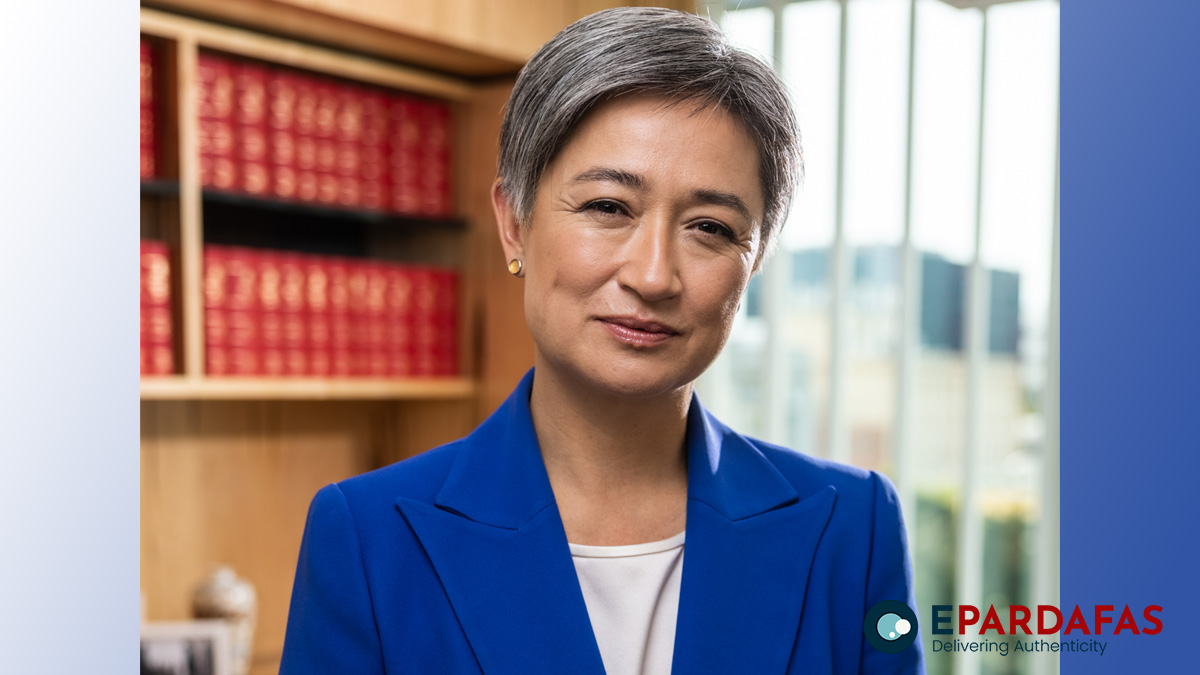
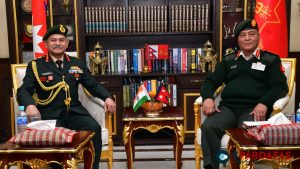
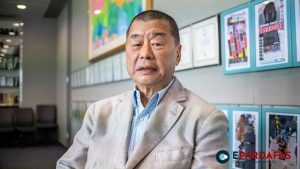
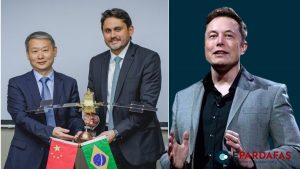
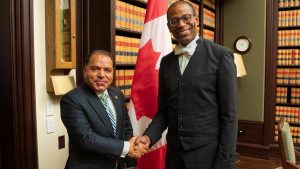
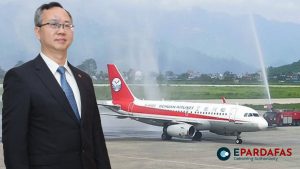
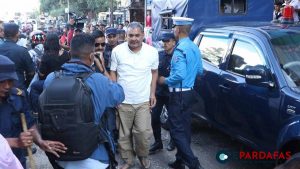
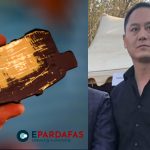

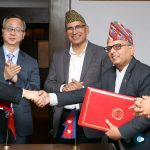

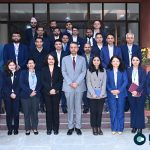
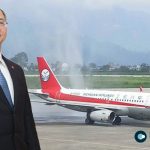
Comments